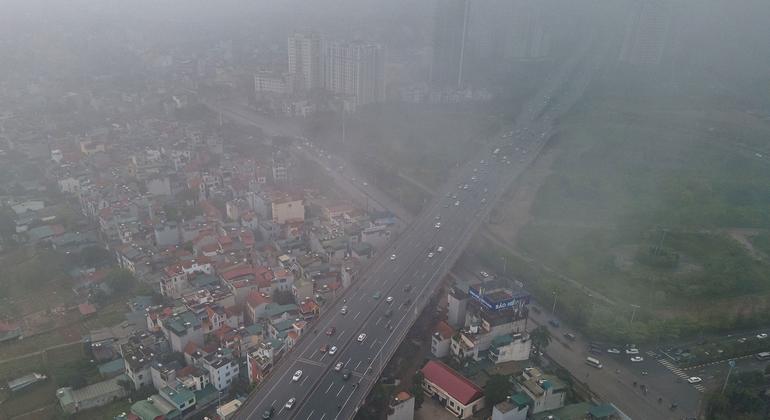A recent analysis by UNICEF has exposed a concerning reality in East Asia and the Pacific: over 100 children under the age of five die daily due to air pollution. Bangkok, the capital of Thailand, stands out as a alarming example, facing pollution levels that have led to school closures and increased concerns about public health.
The regional director of UNICEF for East Asia and the Pacific, June Kunugi, highlighted that “every breath matters, but for too many children, every breath can be harmful.” The report reveals that approximately 500 million children in the region live in countries where air pollution levels exceed safety guidelines established by the World Health Organization (WHO).
Around 91% of these young people are in nations with ozone levels that significantly surpass the recommended limits. Household pollution, mainly caused by the use of solid fuels for cooking and heating, contributes to over half of child deaths attributed to pollution. Additionally, there are 325 million children exposed to PM2.5 particles at concentrations five times higher than recommended levels, and around 373 million reside in areas with high levels of nitrogen dioxide.
The risks posed by this pollution are not limited to immediate health problems; it also hinders growth, damages lungs, and affects cognitive development, starting even in the womb. Pollution exacerbates respiratory diseases and can lead to long-term complications such as diabetes and heart diseases. Children from low-income families, who typically live near factories or busy roads, are especially vulnerable.
In addition, pollution imposes a significant economic burden, affecting health systems and increasing associated costs. According to the World Bank, in 2019, pollution-related diseases and deaths in the region cost 9.3% of the GDP, equivalent to over $2.5 trillion.
In response to this critical situation, UNICEF urgently calls for action, urging governments, businesses, and communities to prioritize addressing the impact of air pollution. It is imperative to establish effective climate policies, move towards clean energy, and commit to meeting air quality standards recommended by the WHO. Companies are also urged to adopt clean technologies, and educators and parents to work towards promoting a healthier environment for children.
Kunugi concluded by emphasizing that “solutions exist, and our collective future depends on implementing them.” UNICEF is committed to advocating for a cleaner and safer world, developing programs that reduce children’s exposure to pollution and collaborating with communities to empower youth as champions of clean air.
via: MiMub in Spanish










